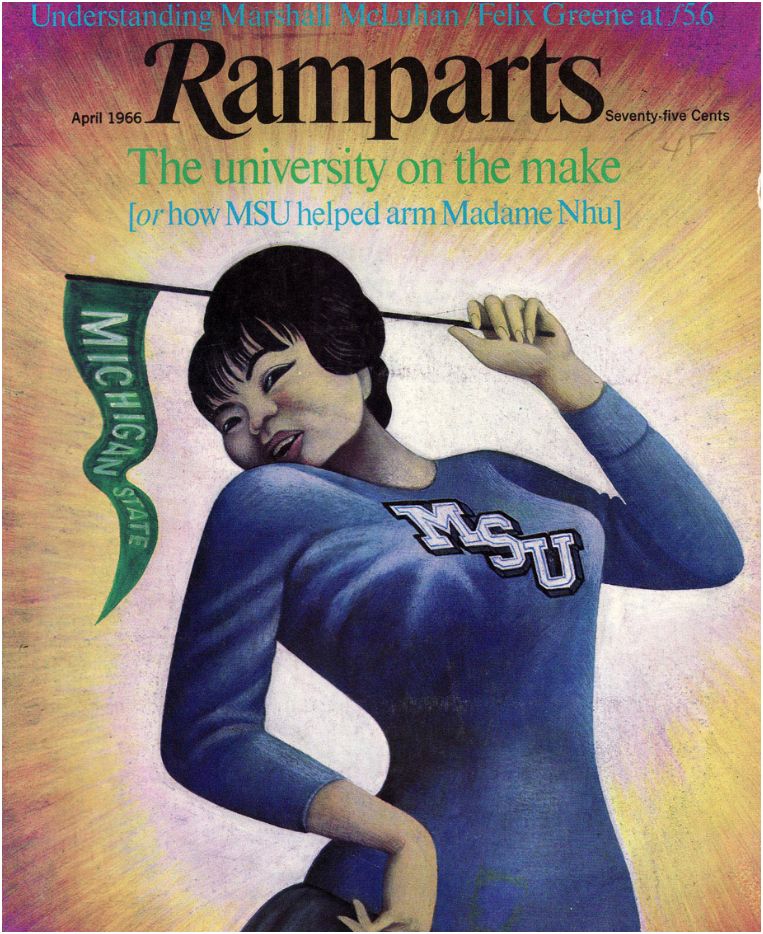Earlier this week, Tran Le Xuan died in Rome. Tran, who is more well-known as Madame Nhu, was the sister-in-law of Ngo Dinh Diem and the wife of Ngo Dinh Dam, the president and chief adviser, respectively, in the government of South Vietnam that the U.S. supported until it decided to support a coup against it on 2 November 1963. Her husband and brother-in-law were assassinated during the coup; she was outside the country at the time and unable to return.
Madame Nhu was a complicated and contradictory figure. Characterized in a 1962 Time magazine article as “a puritan as well as a feminist,” she campaigned in support of freedom and rights for women, but called for the end to “immoral” entertainment and for death to her family’s detractors, who she characterized as “scabby sheep.” Amy Davidson’s short, unsettling piece for The New Yorker about her death notes that “she responded to the self-immolation of a Buddhist monk by saying, ‘Let them burn and we shall clap our hands.’ And ‘if the Buddhists wish to have another barbecue, I will be glad to supply the gasoline and a match.’”
As Amy Davidson notes, the closeness between the Diem regime and the U.S. government are resonant with the relationships between the U.S. government and various corrupt regimes elsewhere in the world in the present moment. Yet there may be a cautionary tale closer to home for those us inside universities – and one that that this death can help us to remember. On the occasion of Madame Nhu’s death, a colleague sent the above 1966 cover image from Ramparts magazine to me. The cover, which portrayed Madame Nhu as a cheerleader for Michigan State University (MSU), foreshadowed the article inside by Warren Hinckle, Robert Scheer, and Sol Stern, which uncovered the close relationship between MSU and the CIA in counterinsurgency in Vietnam. The image [while deemed sexist and misogynist by this feminist] effectively captures both the central role of Madame Nhu in public life, and also the U.S. relationship to her, her husband, and her brother-in-law. The article, a reproduction of which can be found in PDF form here, contains details of how different parts of the university became involved in supporting covert, unjust actions carried out in the alleged name of supporting “democracy.”
In his introduction to the article, Stanley K. Sheinbaum, a professor of economics who had been involved in MSU’s work in Vietnam, noted that the article
… is merely a case study of two critical failures in American education and intellectual life today. The first and most obvious is the diversion of the university away from its functions (and duties) of scholarship and teaching. The second has to do with the failure of the academic intellectual to serve as critics, conscience, ombudsman. Especially in foreign policy, which hence forth will bear heavily on our very way of life, is this failure serious.
Over fifty years later, Madame Nhu is dead and Professor Sheinbaum’s words are still relevant.
Elizabeth Fitzgerald can be reached at lizziefitzy@gmail.com
 Facebook
Facebook  Twitter
Twitter  Soundcloud
Soundcloud  Youtube
Youtube  Rss
Rss 